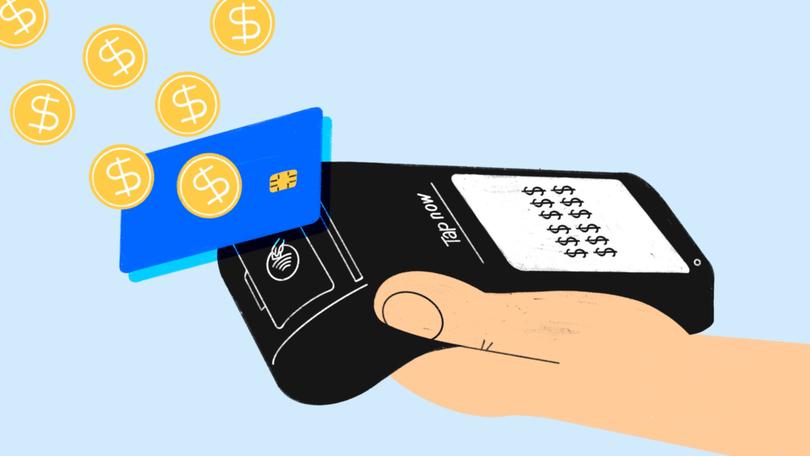RBA card surcharge review will also look at banning credit card fees slugged to customers
Australia’s Reserve Bank is considering banning credit card surcharges as households struggle with the rising cost of living.

The Reserve Bank of Australia is seeking feedback on extending a potential ban on debit card surcharges to credit cards amid rising scrutiny of consumer fees by politicians and hard-hit households.
The bank is examining surcharges as part of a broader review of card payment costs imposed on retailers, with the Albanese Government prepared to outlaw fees on the use of debit cards by January 2026.
However, while they are not under immediate threat, the RBA’s consultation paper released on Tuesday confirmed the review will also study the impact of banning or capping surcharges on credit cards.
Sign up to The Nightly's newsletters.
Get the first look at the digital newspaper, curated daily stories and breaking headlines delivered to your inbox.
By continuing you agree to our Terms and Privacy Policy.It wants submissions by December 3, saying the feedback will be “crucial in shaping future reforms to ensure a safe and efficient payments system”.
“In an environment of heightened concern around the cost of living, card payment costs and surcharging are attracting more attention from merchants and consumers,” the RBA said on Tuesday.
“These issues are linked, since merchants would be less likely to surcharge consumers if card payment costs were lower.”
According to the issues paper, retailers are paying more than $6.4 billion a year to banks, payment platforms and card companies such as Visa and Mastercard to process card payments.
Smaller retailers without the power to negotiate better processing rates or the financial strength to absorb the costs are often forced to pass on most of the charges to customers.
Businesses are prevented by law from recovering from customers any more than their own processing costs.
However, the volume of fees has soared with the take-up of cards for transactions in recent years and the diminishing use of cash.
As late as 2022, cash accounted for just 13 per cent of transactions in Australia, with debit cards used for over half of all retail payments.
Back then, seven per cent of all card transactions were surcharged, but that figure is believed to bet higher today, thanks mainly to a higher use of tap-and-go cards in cafes, restaurants and pubs.
Federal Treasurer Jim Chalmers said on Monday the potential ban on debit card surcharges would be conditional on the introduction of safeguards to ensure small businesses were not slugged higher processing costs in the event of a change.
The Australian Association of Convenience Stores has welcomed a ban, but said it could only be supported if” the relevant reform to the payments system is implemented to slash card fees levied on retailers”.
“Retailers have seen their merchant fees explode over the last few years,” association chief executive Theo Foukkare said.
“While major retailers like Coles and Woolworths don’t apply surcharges because they are on strategic rates with the banks, small businesses are often forced to pass on the cost of the electronic payment system to shoppers just to keep their head above water,” he said.
“This is well overdue and something our members have been concerned by for many years.
“For too long, the big banks and overseas payments providers have continued to benefit from their complicated and confusing fees that they charge businesses.
“Retailers have been demonised for these surcharges – with the banks and overseas payment providers pedalling a false narrative that shopkeepers pocket the cash, when it’s simply not true.
“They are simply passing on their bank fees.”
